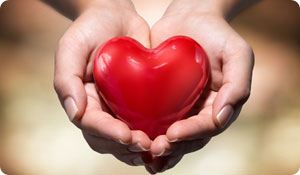
If you live in northern climes, shoveling snow is usually the worst part of the lovely, white scenery. Shoveling can be physically stressful and exhausting.
If you're not conditioned for outdoor activities in the cold, over exertion can increase the risk of heart attack. Furthermore, should your body temperature fall below 95 degrees, you may suffer from hypothermia. According to William Tansey, MD, hypothermia causes hypertension. When peripheral arteries constrict to protect the core temperature of key organs (kidney, heart, and lungs), this can lead to irregular (especially slow) heart rhythms and heart failure—the biggest cause of death in cases of hypothermia.
Cold weather also coincides with flu season. Individuals with heart disease, or who have already had a stroke, are at increased risk of complications from the flu. The Centers for Disease Control (CDC) reports that during the 2010-11 flu season, 37 percent of adults hospitalized for the flu also had heart disease. The CDC recommends the annual flu and pneumococcal vaccine for those at risk.
Hot Weather Hazards
Hot weather can be just as dangerous for the heart. If the body's temperature rises even slightly, its cooling mechanism kicks in and cools itself in two ways: perspiration (sweat) and blood vessel dilation or increased blood flow to the skin. When blood vessels dilate, extra blood can get to the skin, which causes the heart to work harder—and possibly strains it. Furthermore, when the body gets warm, it loses sodium and potassium via sweat, contributing to low blood pressure issues and dehydration. If you have heart disease, you are particularly vulnerable to heat-related heart problems.
Beware of Holiday Heart
Too much merriment around the holidays can also be a recipe for heart disaster. In fact, during the holidays heart disease deaths spike. This phenomenon even has a name: Holiday Heart Syndrome. According to the Long Island Heart Associates, binge drinking causes the heart to beat erratically and faster than normal (especially when paired with salty snacks and side dishes), even in people who've never had a heart condition. Holiday Heart Syndrome may possibly lead to congestive heart failure or stroke.
Take Precautions
In cold weather,
- Dress in layers. Layered clothing traps air and forms protective insulation.
- Accessorize.Wear a hat on your head and wrap a scarf around your neck. Keep your hands and feet protected, too.
- Don't drink alcohol before going outside.
In warm weather,
- Stay hydrated. But avoid consuming beverages with sugar, alcohol, or caffeine.
- Wear light, breathable clothing.
- protect your skin from the sun Wear a hat.
- Avoid outdoor activities during the hottest times of the day.
William A. Tansey, III, MD, FACC, FACP, FAHA, reviewed this article.
Sources
"The Season for Heart Attacks: Foods Can Affect Blood Pressure & Cholesterol." Harvard Health News. Accessed 9 Sept 2013.
Patrick J. Skerrett. "Heat Is Hard on the Heart. Simple Precautions Can Ease the Strain." Harvard Health Blog. 22 July 2011.
"Flu and Heart Disease & Stroke." Centers for Disease Control and Prevention. 28 March 2013.
"Protect Against Holiday Heart Syndrome This Season." Long Island Heart Associates. Accessed 5 Sept 2013.
"Cold Weather and Cardiovascular Disease." American Heart Association. Updated 11 Dec 2012.





